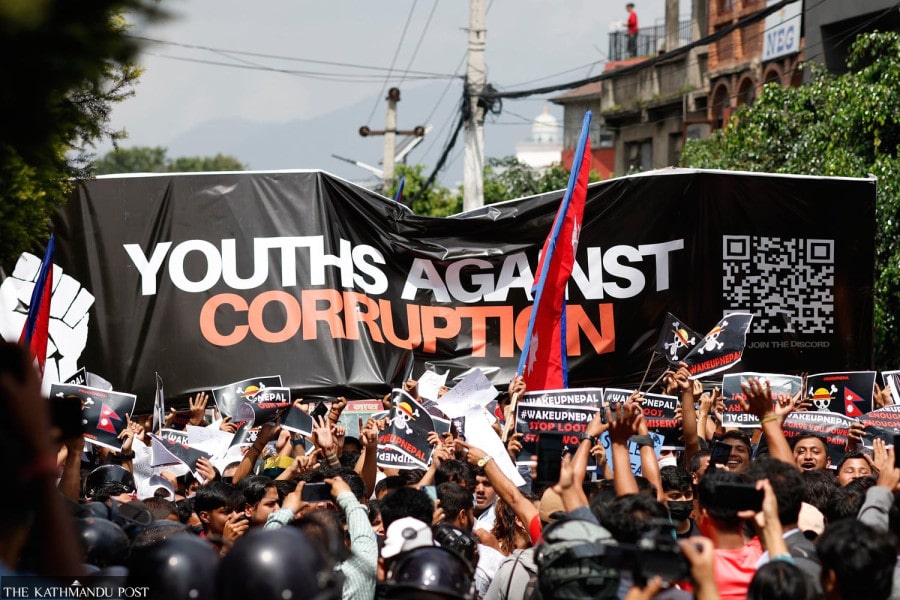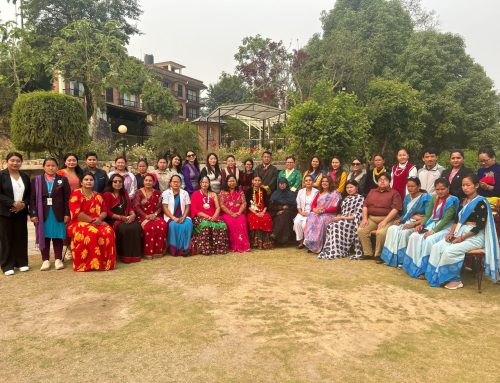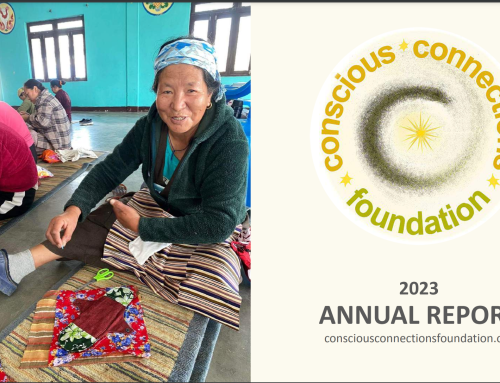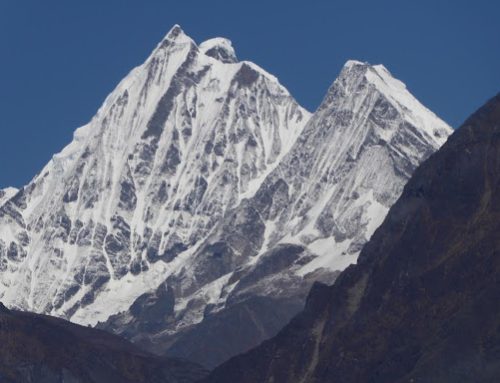Nepal’s youth showed us what’s possible when people demand better. We must not stay silent.
Written by Denise Attwood

I don’t anger easily. But when unfair policy threatens our business, our producers in Nepal, our staff, store buyers, and their customers—all of whom are hardworking and dedicated—then enough is enough. It’s time to expose the damage that this administration’s new tariffs are causing, not just to American businesses, but to marginalized producers around the world.
Today we received the “tariff” bill for our fifth shipment from Nepal this year—and it’s only getting worse. But before I share the financial travesty, let me tell you the heroic story of how this shipment even reached the U.S.
This shipment, our largest of the year, and our most vital due to holiday sales was supposed to leave Nepal by air on Sept 8. For those of you listening to the news, Nepal’s Gen Z rose up in protest on that day, by the thousands, demanding accountability in a government that has only demonstrated massive corruption. What did those kids want? A chance, an opportunity and a future. They no longer wanted the only “opportunities” to be The United Arab Emirates (UAE), Saudi Arabia, and Malaysia. They no longer wanted to leave by the 1000’s every day searching for meaningful work, and they wanted a government who would work for them to help create a better Nepal.
Those kids brought down the government in 3 days and by Sept 11 not only had the Prime Minister stepped down but all of Parliament had been dissolved. By Sept 12th by the demands of the 10,000+ protesters who gathered on social media to decide, Sushila Karki, the former head of the Nepali Supreme Court was appointed as the first female interim Prime Minister, tasked with the job of overseeing a transitional government. Why her? Because she “symbolized integrity and resistance against corruption” according to Yog Raj Lamichhane, an assistant professor at the School of Business in Nepal’s Pokhara University.
Needless to say, with all of the protests came a lockdown and curfew. The airport and all business and government offices closed. Our shipment was to leave during this time, and of course it didn’t. BUT, by Saturday the 13th the curfew had lifted and by Sunday Nepal Customs and the airport opened. Our incredible crew on the ground got our shipment out that day and got it headed to the US. That was a miracle and shows not only their dedication to Ganesh Himal (we’ve worked with them since they started in the late 80’s) but their dedication to the producers we work with, knowing how important it was for them to have all of the accounting and payment done before their largest holiday of Dashain. All of us were so grateful for all that they did to make this happen amidst all of the chaos.
And then our shipment got to the US by a miracle of miracles by Sept 16th…and then for the first time in 40 years it was tagged for an intensive exam at the customs facility. For that alone we were charged $5997.49 and we are waiting for further transport fees from the airport to the customs facility. We’re hoping this part is an isolated event that only takes place every 40 years but we will wait to see. The real kicker though is the duty that we have been paying since this administrations “tariffs” of March of 2025.
Here’s a brief breakdown to give you a taste:
- Our duty for our Sept 2025 shipment (remember this is our 5th “new tariff” shipment this year) is $10,476.79
- Our duty for a similar size shipment in Sept 2024 was $2,542.
- Our broker’s fees have stayed the same but our total bill went from $4787 in Sept of 2024 to $16,925.28 . An increase of $12,138
This increase is for 1 shipment out of 6. If we are conservative and estimate $10,000 more per shipment in duty, tell me, where does that $60,000 come from? It comes from the pocket of small business and customers. And can we ask, what could that $60,000 do differently if it was in our hands. $60,000 could be a good job for another employee, it could be invested in more products or services for producers helping them raise their incomes, it could be invested in positive progress for climate change… there are so many possibilities. But no, somehow we are going to have to come up with $60,000 to pay for what, billionaires tax cuts? We could learn a lesson from Nepal’s youth and say it’s time to stop the corruption and work to give people a fair shot.
So, I don’t recount this story of heroics in Nepal and a ridiculous tariff policy in the US to invoke pity or to suggest that the struggle is hard. That we know, after 40 years and countless revolutions and earthquakes and economic downturns in the US we know life and business is hard and we can deal with that. I recount it to say enough of these arbitrary “man” made obstacles to moving together toward a brighter future. We can come together after a devastating earthquake—something none of us can control. But we must also unite to confront this man-made system of corruption and inequality that these tariffs uphold.
The fair trade movement is about creating a just economy where everyone prospers. We have worked hard to get where we are. I remember when there wasn’t even a fair trade movement and now look at the force we have become. So, I am not saying I have any answers at the moment but I do know we need to become crystal clear about the impacts that this administration’s policies are having on our businesses, our customers, the producers we work with and the countries we work in. Once we share our stories (and we know ours is not the worst) then we can ask you to share our stories with your customers and your congresspeople and maybe the America we all know and love will wake up and see that there is a better path.
So we’re not asking for pity. We’re calling for awareness—and change. This isn’t just about one business, or even one industry. It’s about whether we build a system that uplifts or one that extracts.
If you’re a customer, a store owner, a policymaker, or someone who believes in economic justice—share this story. Write your representatives. Demand transparency and fairness in trade policy.
Nepal’s youth showed us what’s possible when people demand better. Let’s not stay silent.




